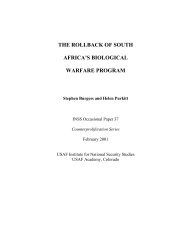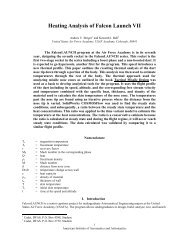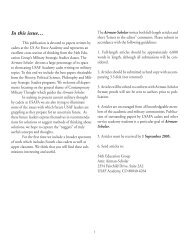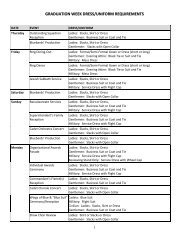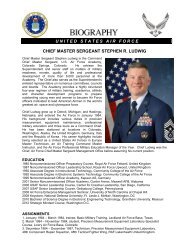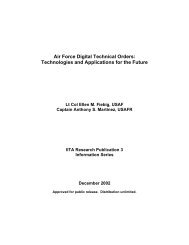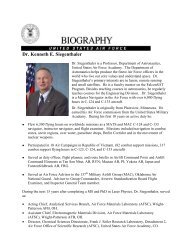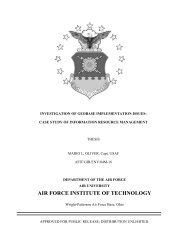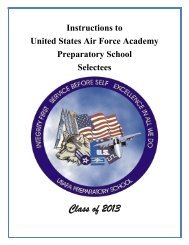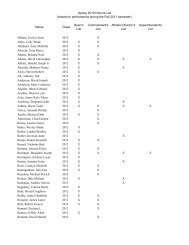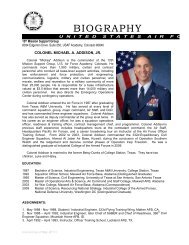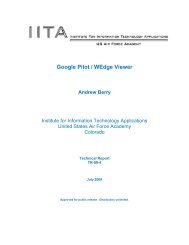Military Professionalism - United States Air Force Academy
Military Professionalism - United States Air Force Academy
Military Professionalism - United States Air Force Academy
You also want an ePaper? Increase the reach of your titles
YUMPU automatically turns print PDFs into web optimized ePapers that Google loves.
Meilinger, Phillip S. “Soldiers and Politics: Exposing Some Myths.” Parameters 40.2<br />
(Summer 2010), 74-86.<br />
http://www.carlisle.army.mil/usawc/parameters/Articles/2010summer/Meilinger.pdf<br />
“The record is clear: The US military was anything but politically neutral throughout<br />
much of its history; its leaders were not always willingly subordinate to civilian<br />
authority; and they did not often agree to an unwritten standard of behavior. Rather, there<br />
was in essence a “permeable membrane” between the military and political spheres that<br />
allowed men to pass back and forth between the two as it suited their purpose—and the<br />
purpose of the political parties and even the nation.”<br />
Millonig, William. The Impact of Religious and Political Affiliation on Strategic<br />
<strong>Military</strong> Decisions and Policy Recommendations. Strategy Research Project.<br />
Carlisle Barracks: U.S. Army War College, 2006.<br />
http://handle.dtic.mil/100.2/ADA449308<br />
This paper analyzes the impact of a culturally homogeneous group on strategic decisionmaking<br />
and policy recommendations. The <strong>United</strong> <strong>States</strong>' military's organizational climate<br />
has shifted steadily to the right since the Vietnam War. Today's Armed <strong>Force</strong>s are<br />
increasingly identified with conservative Christian and Republican values. This change in<br />
group dynamics can inhibit the decision-making process by preventing a thorough review<br />
of relevant courses of action, in accordance with the Rational Decision Model. The nature<br />
of in-groups and their influence on the decision process can have a deleterious effect on<br />
sound decision making, even if only inadvertently. Today's conservative voice has a<br />
strong influence on national policy decisions. This makes it imperative that strategic<br />
leaders understand the culture shift in today's military, as well as how group dynamics<br />
can limit creativity and proper analysis of alternatives. The failure to do so can cause a<br />
divergence of opinion between military and civilian leaders and thereby widen the gap in<br />
civil military relations.<br />
Strong, Steven T. Politicians in the Ranks. Strategy Research Project. Carlisle<br />
Barracks: U.S. Army War College, 2005.<br />
http://handle.dtic.mil/100.2/ADA434870<br />
This article walks through the various laws regulating the role that active duty and retired<br />
military officers can play in politics and recommends changes.<br />
42




